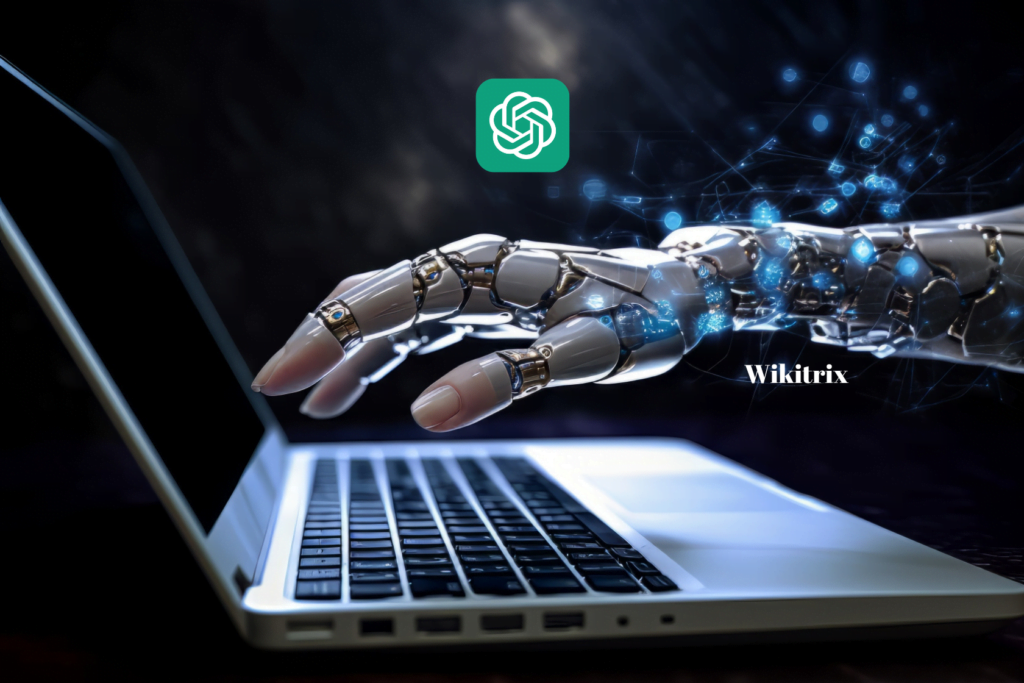
AI Chatbots: The Game-Changers in E-commerce Success Stories in 2024
In the dynamic realm of online commerce, businesses are constantly innovating to improve customer experiences and boost sales. One technology that has emerged as a game-changer in this space is AI-powered chatbots. These intelligent bots, fueled by artificial intelligence (AI), natural language processing (NLP), and machine learning (ML), are revolutionizing the way businesses interact with customers, handle queries, and drive conversions.
Table of Contents
The Evolution of AI Chatbots in E-commerce

AI chatbots have witnessed a rapid evolution, from basic scripted bots to sophisticated virtual assistants capable of understanding context, sentiment, and intent. This evolution has been driven by advancements in AI algorithms, data analytics, and the increasing demand for personalized customer interactions.
Enhancing Customer Service Excellence
One of the primary benefits of AI chatbots in e-commerce is their ability to deliver exceptional customer service round-the-clock. These bots can handle a myriad of inquiries, including product information, order tracking, returns, and more, without the need for human intervention. By leveraging AI and NLP, chatbots provide accurate and instant responses, ensuring customer satisfaction and loyalty.
Personalization and Customer Engagement
AI chatbots excel in delivering personalized experiences tailored to each customer's preferences, browsing history, and past interactions. Through ML algorithms, chatbots analyze data to offer product recommendations, promotions, and content that resonate with individual customers, thereby increasing engagement and driving sales.
Omni-channel Integration for Seamless Experience
One of the key strengths of AI chatbots is their ability to seamlessly integrate across multiple channels, including websites, mobile apps, social media platforms like Facebook Messenger, WhatsApp, and more. This omni-channel presence ensures that customers can engage with businesses through their preferred communication channels, enhancing accessibility and convenience.
Key Advantages of AI Chatbots in E-commerce
- 24/7 Availability and Instant Responses: AI chatbots are available round-the-clock, providing instant responses to customer inquiries, irrespective of time zones or business hours.
- Efficiency and Scalability: Chatbots can handle a large volume of queries simultaneously, ensuring scalability during peak traffic periods and promotional events.
- Cost-Effective Customer Support: By automating routine inquiries, chatbots reduce the workload on human agents, leading to cost savings and improved efficiency.
- Personalized Recommendations: Leveraging ML algorithms, chatbots offer personalized product recommendations, enhancing cross-selling and upselling opportunities.
- Data-driven Insights: Chatbots analyze conversation data to gain insights into customer preferences, pain points, and frequently asked questions, enabling businesses to optimize their strategies.
Implementation of AI Chatbots in E-commerce
Integrating Chatbots into Websites and Apps
To harness the full potential of AI chatbots, e-commerce platforms seamlessly integrate chatbot functionalities into their websites and mobile apps. This integration ensures that chatbots are readily available to assist customers at every touchpoint, from product discovery to post-purchase support. Moreover, businesses can customize chatbot interactions to align with their brand voice and identity, creating a consistent and engaging experience for users.
Chatbot Platforms and Technologies
The effectiveness of AI chatbots in e-commerce hinges on advanced technologies such as natural language processing (NLP), machine learning (ML), and deep learning.
These technologies enable chatbots to understand complex queries, interpret user intent, and deliver relevant responses in real-time. Additionally, chatbot platforms offer a range of features and tools that empower businesses to create highly intelligent and interactive chatbot experiences for their customers.
Customizing Chatbot Interactions
Customization is key to maximizing the impact of AI chatbots in e-commerce. Businesses can tailor chatbot interactions to suit different scenarios, user preferences, and stages of the customer journey. Whether it's providing product recommendations, answering FAQs, or handling returns and refunds, chatbots can adapt to various contexts and deliver seamless experiences that enhance user satisfaction and drive conversions.
Strategies for Maximizing AI Chatbot Effectiveness
To leverage the full potential of AI chatbots in e-commerce, businesses should implement the following strategies:
- Advanced Chatbot Platforms: Choose AI chatbot platforms with advanced capabilities such as sentiment analysis, language translation, and integrations with CRM systems.
- Optimized Conversational Flows: Continuously optimize chatbot conversations based on analytics and customer feedback to improve user experience and conversion rates.
- Intelligent Personalization: Use customer data to personalize chatbot interactions, including product recommendations, promotions, and targeted messaging.
- Multi-channel Integration: Integrate chatbots seamlessly across various channels to provide a consistent and cohesive experience for customers.
- Human-AI Collaboration: Strike a balance between AI automation and human support for complex queries or situations requiring empathy and understanding.
Future Trends and Innovations in AI Chatbots

Looking ahead, the future of AI chatbots in e-commerce holds exciting possibilities. Key trends and innovations to watch out for include:
- Voice-enabled Chatbots: Integration of voice recognition technology for hands-free interactions and improved accessibility.
- AI-driven Personal Shopping Assistants: Chatbots that act as personalized shopping assistants, guiding customers through product selection, sizing, and style recommendations.
- Enhanced Security Measures: Implementation of AI-powered security features to protect customer data and prevent fraud during transactions.
- Emotional Intelligence in Chatbots: Development of chatbots with emotional intelligence capabilities to understand and respond to customer emotions effectively.
- Augmented Reality (AR) Integration: Integration of AR technology within chatbots for virtual try-on experiences, enhancing the online shopping experience.
Conclusion: Embracing the AI Chatbot Revolution in E-commerce
In conclusion, AI chatbots are transforming the e-commerce landscape by delivering superior customer service, personalized interactions, and seamless omni-channel experiences. Businesses that embrace this technology and adopt best practices will gain a competitive edge, driving customer satisfaction, loyalty, and ultimately, revenue growth.
FAQs
1. What are AI chatbots?
AI chatbots are virtual assistants powered by artificial intelligence (AI), natural language processing (NLP), and machine learning (ML) algorithms. They are designed to simulate human-like conversations and provide automated assistance to users, including answering queries, providing information, and assisting with transactions.
2. How do AI chatbots benefit e-commerce businesses?
AI chatbots offer several benefits to e-commerce businesses, including:
- 24/7 Availability: Chatbots Offer 24/7 Availability, Delivering Instant Customer Support Around the Clock
- Cost Savings: By automating routine tasks and inquiries, chatbots reduce the workload on human agents, leading to cost savings.
- Personalization: Chatbots analyze customer data to deliver personalized recommendations, enhancing customer engagement and driving sales.
- Omni-channel Support: Chatbots can seamlessly integrate across multiple channels, including websites, mobile apps, and social media platforms, providing a consistent experience.
3. How do AI chatbots understand customer queries?
AI chatbots use natural language processing (NLP) algorithms to understand and interpret customer queries. These algorithms analyze the text, context, intent, and sentiment of the query to provide relevant and accurate responses.
4. Can AI chatbots handle complex inquiries?
Yes, advanced AI chatbots equipped with machine learning capabilities can handle complex inquiries by learning from past interactions and continuously improving their understanding and responses. However, for highly complex or sensitive inquiries, human intervention may be required.
5. What role do AI chatbots play in customer engagement?
AI chatbots play a significant role in enhancing customer engagement by providing instant responses, personalized recommendations, and proactive assistance. They keep customers engaged, answer their queries promptly, and guide them through the purchase journey, leading to higher satisfaction and loyalty.
6. How can businesses integrate AI chatbots into their e-commerce platforms?
Businesses can integrate AI chatbots into their e-commerce platforms by:
- Choosing a reliable chatbot platform with advanced AI capabilities.
- Customizing chatbot workflows and responses to align with business goals and customer needs.
- Integrating chatbots with existing systems, such as customer relationship management (CRM) software, for seamless data sharing and management.
- Testing and optimizing chatbot performance based on user feedback and analytics.
7. What are some future trends in AI chatbots for e-commerce?
Future trends in AI chatbots for e-commerce include:
- Voice-enabled chatbots for hands-free interactions and accessibility.
- AI-driven personal shopping assistants offering tailored product recommendations and style advice.
- Enhanced security measures using AI algorithms to protect customer data and prevent fraud.
- Chatbots with emotional intelligence capabilities to understand and respond to customer emotions effectively.
- Integration of augmented reality (AR) technology within chatbots for virtual try-on experiences and enhanced shopping experiences.
8. How do AI chatbots handle customer data and privacy?
AI chatbots adhere to strict data privacy regulations and protocols to ensure the security and confidentiality of customer data. They utilize encryption, anonymization, and access controls to protect sensitive information and only use data for the purpose of improving customer experiences and providing personalized assistance.
9. Can AI chatbots replace human customer support agents entirely?
While AI chatbots excel in handling routine inquiries and tasks efficiently, they are not designed to replace human agents entirely, especially for complex or emotionally sensitive interactions. Human agents bring empathy, critical thinking, and problem-solving skills that complement AI chatbots, leading to a balanced and effective customer support strategy.
10. How can businesses measure the effectiveness of AI chatbots?
Businesses can measure the effectiveness of AI chatbots through key performance indicators (KPIs) such as:
- Response Time: Measure the time taken by chatbots to respond to customer queries.
- Resolution Rate: Track the percentage of inquiries resolved successfully by chatbots without escalation.
- Customer Satisfaction (CSAT) Score: Gather feedback from customers to assess their satisfaction with chatbot interactions.
- Conversion Rate: Monitor how chatbots contribute to conversions, such as completing purchases or upselling/cross-selling.
- Usage Analytics: Analyze chatbot usage patterns, popular queries, and engagement metrics to identify areas for improvement.
11. Are there any limitations or challenges associated with AI chatbots in e-commerce?
While AI chatbots offer numerous benefits, they also face challenges and limitations such as:
- Complex Queries: Some inquiries may be too complex or require human intervention due to nuanced context or emotional nuances.
- Training and Maintenance: Chatbots require continuous training and updates to improve accuracy and keep up with evolving customer needs.
- Integration Issues: Integrating chatbots with existing systems and platforms can pose technical challenges and require seamless data exchange.
- Ethical Considerations: Ensuring ethical use of AI, transparency in data handling, and avoiding biases in chatbot interactions are critical considerations.
12. How can businesses ensure a seamless transition to AI chatbot implementation?
To ensure a smooth transition to AI chatbot implementation, businesses should:
- Conduct thorough research and choose a reputable chatbot platform or provider.
- Define clear objectives and use cases for chatbot implementation aligned with business goals.
- Train employees and stakeholders on using and monitoring chatbots effectively.
- Implement a phased rollout strategy, starting with pilot tests and gradually scaling up based on feedback and performance.
- Continuously monitor, evaluate, and optimize chatbot performance based on user feedback, analytics, and industry best practices.

